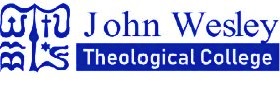Supporting Students at the Wesley
Results of a Survey
DOI:
https://doi.org/10.59531/ots.2023.1.1.107-119Keywords:
inclusive higher education, universal instructional design, students with support needs, students with disabilities, accessible higher educationAbstract
The study presents the conclusions of an investigation conducted at the John Wesley Theological College. The main goal of the survey was to explore the support needs of our students in order to become more inclusive towards students with disabilities and underprivileged students. We conducted a survey research among our students. According to our data our students need support in the following fields: digital curriculum base, peer-to-peer support and support network of professionals such as language teachers, psychologist, special educator, social worker and pastor.
References
évi CCIV. Törvény a nemzeti felsőoktatásról. [online] available at: https://net.jogtar.hu/jogszabaly?docid=a1100204.tv [accessed 26 sep. 2022].
Fazekas, Á.S. (2018). Felsőoktatáshoz történő hozzáférés és a felsőoktatásban való részvétel vizsgálata a fogyatékossággal élő személyek vonatkozásában. [doktori disszertáció]
https://edit.elte.hu/xmlui/handle/10831/44521 [accessed 22 sep. 2022].
Fazekas, Á.S. (2021). Egyetemes tervezés a felsőoktatásban – jó gyakorlatok a tanulás maximalizálása érdekében. In: K. Vitéz, ed., befogadó egyetem-itt és most. [online] Pécs: Pécsi Tudományegyetem, 173–185. Available at: https://pea.lib.pte.hu/bitstream/handle/pea/33801/vitez-kitti-szerk-befogado-egyetem-itt-es-most-pte-btk-2021.pdf?sequence=1&isallowed=y [accessed 22 sep. 2022].
Higbee, J.L. (2009): Implementing universal instructional design in postsecondary courses and curricula. Journal of college teaching and learning (TLC), 6(8). https://doi.org/10.19030/tlc.v6i8.1116
Könczei, G, Hernádi, I. (2013): A fogyatékosságtudomány fő fogalma és annak változásai. In: Nagy, Z.É. (ed.). Az akadályozott és az egészségkárosodott emberek élethelyzete Magyarországon. Budapest: NCSSZI, 7–21.
Pliner, S.M. and Johnson, J.R. (2004): Historical, theoretical, and foundational principles of universal instructional design in higher education. Equity & excellence in education, 37(2): 105–113. https://doi.org/10.1080/10665680490453913
Story, M.F., Mueller, J.Ll., Mace, R.L. and Center, R. (1988): The universal design file: designing for people of all ages and abilities. Revised edition. Center for universal design, NC state university.
Varga, A., Deli, K. and Fodor, B. (2019). Felsőoktatás befogadóvá válásának szemléleti kerete és gyakorlati megvalósítása a Pécsi Tudományegyetemen. Educatio, [online] 28(4),755-766. https://doi.org/10.1556/2063.28.2019.4.7
Varga, A., Horváth, F. (2021): Befogadó egyetem – komplex intézményfejlesztési program a pécsi tudományegyetemen. In: Vitéz K. ed.: Befogadó egyetem - itt és most. pp. 13–25. Pécsi tudományegyetem, Pécs.
https://pea.lib.pte.hu/bitstream/handle/pea/33801/vitez-kitti-szerk-befogado-egyetem-itt-es-most-pte-btk-2021.pdf?sequence=1&isallowed=y [ACCESSED 22 SEP. 2022].
Varga, A., Vitéz, K., Orsós, I., Fodor, B., Horváth, G. (2020): diverzitás és inklúzió a felsőoktatásban. – Educatio [online] 29(3): 449–464. https://doi.org/10.1556/2063.29.2020.3.8
Downloads
Published
How to Cite
Issue
Section
License

This work is licensed under a Creative Commons Attribution-NonCommercial-NoDerivatives 4.0 International License.
OTS articles are subject to the Creative Commons Attribution-NonCommercial-NoDerivates 4.0 International Licenses Copyright Terms.





